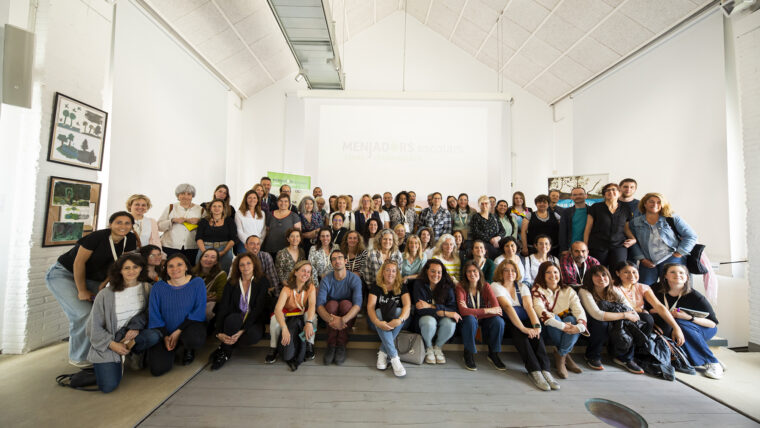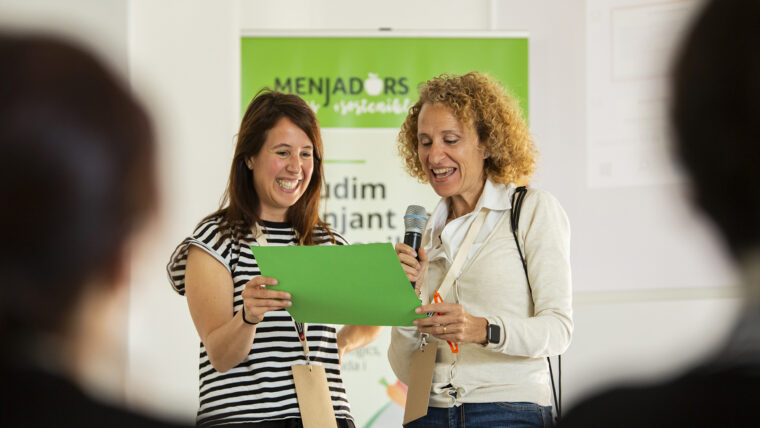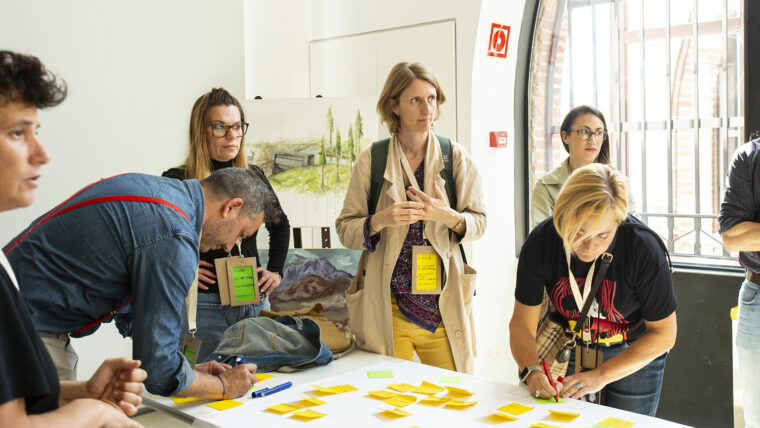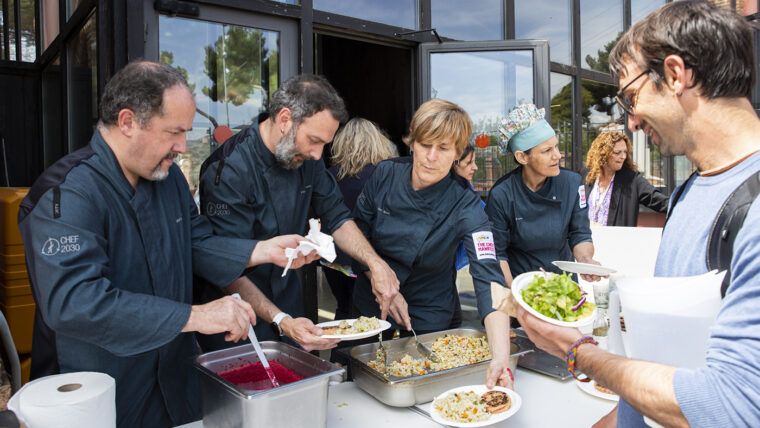Healthier and more sustainable school meals, the key to success in improving children's diets
The gathering provided an opportunity to publicise the initiative and share experiences among stakeholders: school management teams, teachers, the companies managing the kitchens and lunchtime spaces, monitors, kitchen staff, producers and families.

Schools, and in particular school dinners, play an important role in feeding children and young people, not only guaranteeing them access to healthy and sustainable food but also serving as a tool for learning and education and as a hub where the whole education community gets together: teachers, students and families. Based on this premise, 2020 saw the launch of the ‘Menjadors més sans i sostenibles’ programme, an initiative for promoting a more balanced, healthy and sustainable diet among children, both at school and at home, which is jointly developed by the Barcelona Public Health Agency (ASPB), Barcelona City Council and the Barcelona Education Consortium.
Today, some 31 schools take part in the programme, benefiting more than 15,000 students who use the school dining service. At these schools, the menus include less red or processed meat and more plant protein, more salad as a side dish and more fresh fruit for dessert, prioritising the use of olive oil as a dressing and for cooking, along with wholegrain products. They also promote local, seasonal produce and, to the extent possible, ecological produce.
Change, a real challenge
For the schools, changes can be very positive but are not always easy. “Finding a menu that everyone likes and feels happy with is complicated, particularly when it comes to reducing the amount of animal protein and adding more plant protein, especially for secondary school children. But little by little we have to try to make the change, if we have to take a few steps back and make the occasional concession then we do so, but we keep pressing ahead”, explained staff from the Institut Escola Costa i Llobera during the ‘Menjadors més sans i sostenibles’ programme session.
The school also liked the fact that, in addition to the lunchtime menus, the programme also makes recommendations for evening meals and lets families know which products are local and seasonal.
This school, the first state-funded Institut Escola (all-through school) in Barcelona, provides more than 800 meals each day.
Supporting schools
The schools that decide to take the leap and implement these eco-sustainable menus are not on their own. They receive support from the ASPB to implement the menus and, in collaboration with the team from the urban food policy section of Barcelona City Council’s Department for Social and Solidarity Economy and Sustainable Food, advice and training is provided both for the teaching staff and management team, and the meal supervisor and catering companies and families. Information resources have also been designed and produced for the schools and families.
“The switch to healthy eating is possible and necessary, but it is important that any schools that wishes to make this switch first seek advice to ensure its viability”, recommends the company Ecoarrels, which currently offers an agro-ecological, locally produced school meals service to some 14 schools, with 3,500 meals per day, in Barcelonès, Maresme, Osona and Tarragonès.
Conclusions from the session
The session, which brought together around 100 people representing the education community from schools in Barcelona and administrations, served as an opportunity to present the results obtained since the programme’s launch, and also to discuss the four challenges addressed by the initiative: the viability of meal management, the increase in plant protein, fresh, ecological, local products and lastly, the participation of the education community and the dining committee.
Out of the various activities, the following notable conclusions were reached:
- It is important to ensure long-term planning of needs and the supply of food to reduce costs and improve supply and direct links with farmers.
- There is a need to support farmers and promote them, guaranteeing the purchase of their crops. Also, organising visits to farms and, above all, educating the entire education community and society in general.
- Collective purchasing should be promoted by the administration, with the creation of regulations that favour this model of school meal management.
- Audits of school meal management are recommended, which look at both regulation and transparency.
- The entire education community needs real involvement. To achieve this, a support network needs to be created that involves the entire education community as well as local farmers.
- It is recommendable to hold these kinds of sessions to share experiences, challenges, address any doubts, etc.
- Resources for training sessions need to be made available.
- Participative and dynamic training sessions should be promoted for the whole education community, and also for families, particularly cooking sessions.
Tools for bringing it home
As a result of the work dynamics, some proposals were raised for continuing to work, for example, on healthy snacks, the role of the dining committees, doubts over prioritising ecological or local produce, making changes to menus that will be accepted, or how to promote the consumption of legumes.
Lastly, the session ended with a lunch that included the presentation of a menu, courtesy of the Chef 2030 network (chefs that work in schools), reinforcing the criteria championed by this programme.






